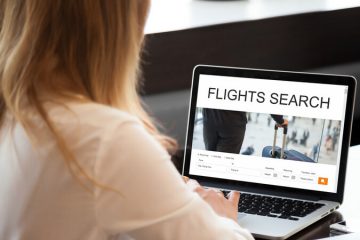Travel managers are perpetually under pressure to optimize policy compliance and travel spending, without affecting the travel experience of business travelers. A corporate travel buyer requires prodigious skills in balancing cost and policy guidelines while delivering superior travel experiences to employees. Partnering with a travel management company can ensure the adoption of innovative technologies for data insights and automation. It helps boost compliance, cost savings, and travel experience. Understanding the role of the corporate travel buyer offers helpful insights into successfully running a corporate travel program by achieving policy compliance and ensuring travelers’ comfort and convenience.
Role of a corporate travel buyer

A corporate travel buyer is a dedicated travel agent working for an organization. They perform diverse roles, including back-end and front-office activities. The person’s tasks span travel booking, risk management, creating travel inventory, and procurement. Establishing sound rapport with travel suppliers is crucial to ensure a seamless traveling experience for business travelers. Scroll ahead to learn about the main roles of the corporate travel buyer.
1. Travel itinerary
A travel itinerary is a crucial document highlighting relevant details of the business trip. Corporate travel buyer creates an extensive itinerary for the business trip comprising details of boarding passes, flight tickets, information about local transport contacts, hotel address, room bookings, and other necessary data.
Sharing the itinerary with business travelers in a digital or paper format will help them streamline their business travel. They can also upload the itinerary on an app or cloud platform for anytime access through the smartphone.
2. Flight booking
Booking flights for corporate travelers must involve extreme care and precision, as most business trips require traveling to multiple destinations and managing time to cover several business meetings, trade exhibitions, and site visits. Ensuring visa requirements and travel documentation, organizing airport transfers, and allowing a brief rest period before the business meetings are crucial considerations.
The flight departure time should ensure the traveler’s convenience in reaching the airport by avoiding traffic. Early morning flights are preferable to help business travelers arrive at the airport without hassles. The choice of the airline should match the traveler’s preference for a better travel experience. Corporate travel buyers must consider flight delays and cancellations and have contingency plans to minimize inconvenience.
Leveraging flight booking programs or tools can help travel buyers compare rates to choose the most beneficial option. Carrying out in-depth research to know other intangible benefits of the flight that match travelers’ preferences.
3. Booking accommodations
Accommodation for business travelers is a vital aspect of a corporate travel program. The corporate travel buyer establishes a profitable association with leading hotel chains to support the company’s travel program. Assuring a substantial business can boost the negotiating power to get special rates for cost savings and amenities like VIP area access and room upgrades for employee experience.
Travel buyers must regularly track and monitor partnerships with hotels besides understanding critical policies like room cancellations. They should have updated knowledge about upcoming hotel projects and other activities, like expansions and renovations.
In-depth knowledge about the dietary preferences of business travelers while booking accommodations. Corporate travel buyer acts as an interface between business travelers and hotels, resolving or following up with issues and complaints. Paying a little extra for flights that offer real value to travelers and ensure policy compliance should be the goal.
4. Balancing savings and traveler needs
Corporate travel buyers focus mainly on negotiating rates with travel suppliers within the travel policy guidelines of the organization. However, the role of the travel manager is shifting toward traveler-centric services. Addressing traveler considerations is a significant role of travel buyers. Achieving employee satisfaction is the next step after rate negotiation and policy compliance.
Using the feedback of business travelers covering pre-trip, in-transit, and post-trip experiences helps business travel buyers design the right approach to support growth objectives. Ensuring an excellent travel experience helps employees deliver higher ROI on a business trip. Being traveler-centric is the key to higher productivity of the business travel program.
Conclusion
The corporate travel buyer must address myriad aspects of business travel management while ensuring the convenience, flexibility, and safety of business travelers. Leveraging SaaS-based travel management tools such as Paxes can minimize the stress of managing travel booking and invoicing. The innovative travel management tools help create itineraries to streamline business tours, besides assuring 24/7 support for dealing with issues and emergencies effectively.
Paxes allows the creation of an extensive travel inventory to enhance cost savings besides high-speed travel booking. The online travel management solution facilitates scalability, as business growth will cause more business travelers to cover multiple destinations.
Corporate Travel Buyer FAQs
How does business travel differ from corporate travel?
Business travel has a smaller travel budget than corporate travel. The growth of the travel budget mandates the role of corporate travel buyers.
What are concierge services in business travel?
Concierge services improve the travel experience by providing lounge access, business travel insurance, and visa renewal. These services are extra and may not be part of standard services by a travel agency.
Why data security is critical in online business travel management?
Online business travel platforms must ensure data security as these handle sensitive data like credit card details and personal data of business travelers.
What is the significance of accessing a broad travel inventory?
Limited travel inventory reduces the choice of travel suppliers affecting cost savings. Accessibility to a vast travel inventory multiplies the options of improving the potential for cost savings.
What is the primary function of the corporate travel buyer?
A corporate travel buyer acts as a bridge between the organization and travel suppliers to buy business travel needs, like transportation and accommodation.



